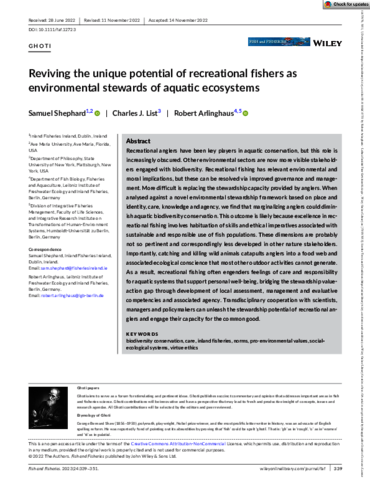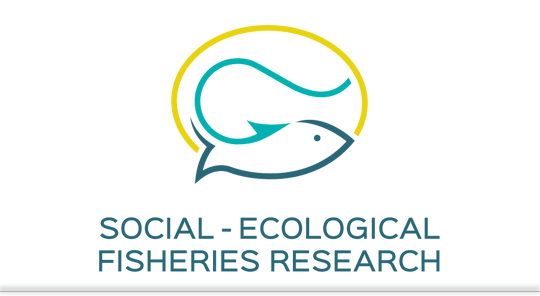Recreational anglers have been key players in aquatic conservation, but this role is increasingly obscured. Other environmental sectors are now more visible stakeholders engaged with biodiversity. Recreational fishing has relevant environmental and moral implications, but these can be resolved via improved governance and management. More difficult is replacing the stewardship capacity provided by anglers. When analysed against a novel environmental stewardship framework based on place and identity, care, knowledge and agency, we find that marginalizing anglers could diminish aquatic biodiversity conservation. This outcome is likely because excellence in recreational fishing involves habituation of skills and ethical imperatives associated with sustainable and responsible use of fish populations. These dimensions are probably not so pertinent and correspondingly less developed in other nature stakeholders. Importantly, catching and killing wild animals catapults anglers into a food web and associated ecological conscience that most other outdoor activities cannot generate. As a result, recreational fishing often engenders feelings of care and responsibility for aquatic systems that support personal well-being, bridging the stewardship value-action gap through development of local assessment, management and evaluative competencies and associated agency. Transdisciplinary cooperation with scientists, managers and policymakers can unleash the stewardship potential of recreational anglers and engage their capacity for the common good.
Reviving the unique potential of recreational fishers as environmental stewards of aquatic ecosystems
Peer-reviewed

Shephard, S., List, C. J., Arlinghaus, R. 2023. Reviving the unique potential of recreational fishers as environmental stewards of aquatic ecosystems. Fish and Fisheries, 24, 339-351.
Published
: 2023
Appeared in
: Fish and Fisheries, 24, 339-351
